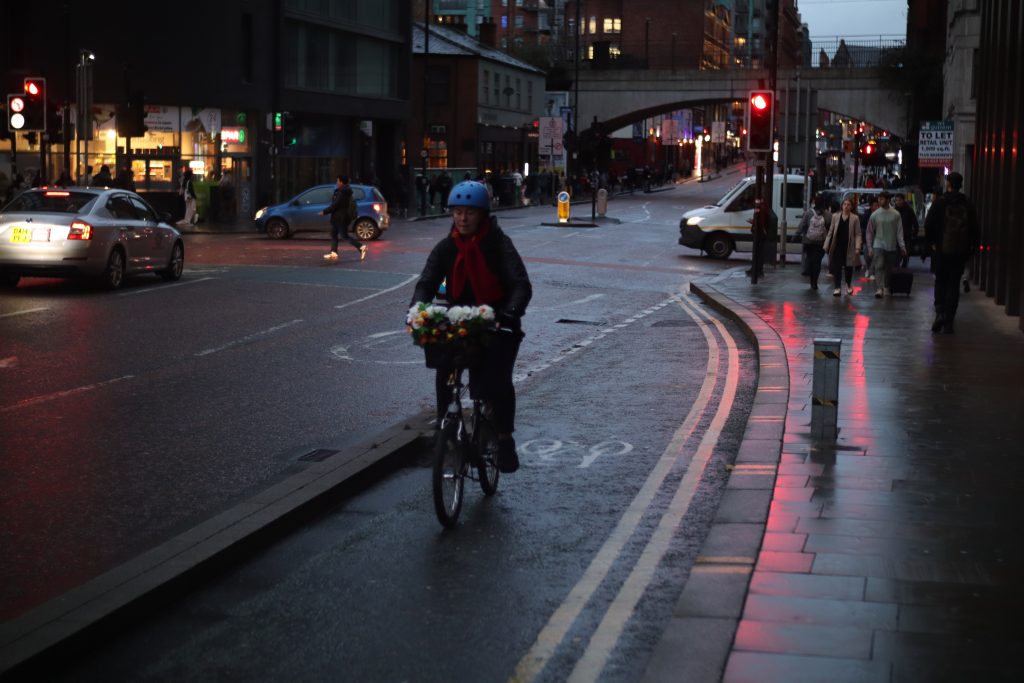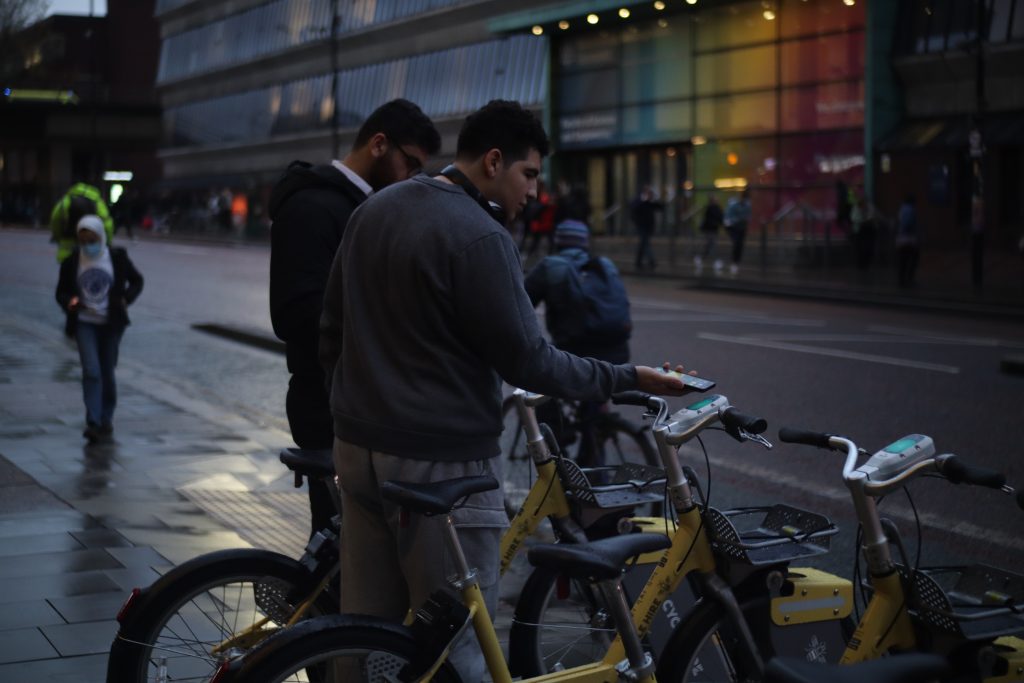Cycling and walking is set to become more common in Salford with the introduction of eco-friendly transport plans.
Plans from the council, including the GMCA’s Bee Network, will make it easier for Salfordians to cycle or walk short distances.
Walk Ride Salford are campaigning to enable more people to walk and cycle short journeys.
Harry Gray, spokesperson for Walk Ride Salford Central said “with COP26 still in peoples mind, it’s important to reiterate that walking and cycling should be one of the main points on the transport agenda.”
If all people who were able to walk or cycle to work were to do so no less than once a week, there would be a significant fall of pollution in the area.

Electric cars have become far more popular in the last five years. In 2016, less than 100,000 electric cars were registered in the UK, there are now almost 700,000 registered.
The problem is electric cars are unaffordable for the majority of the population and the infrastructure is not in place yet.
Walking and cycling are both more accessible ways for people to get around.
Harry said: “The focus of Walk Ride Salford is to try and get people to walk and cycle by getting politicians to build more bike lanes or school streets and similar things.”
“It’s great for people’s mental health, cycling in the city can actually be quicker than driving because you’re less likely to get stuck in traffic and it’s also really important for reducing our emissions as walking and cycling basically produce 0 emissions.
“Most journeys are within a walking and cycling distance, if you can walk or cycle these short journeys that’d be great.”
Walk Ride Salford believes the most effective method of getting more people to walk or cycle is by working with the local councils to introduce schemes which increase active travel.
Harry said: “What we don’t want to do is encourage because encouragement is what we’ve been doing for the last 50 years and it doesn’t work.
“What actually works is enabling. Most people want to cycle or walk more but the reason they don’t is because of the infrastructure and the safety isn’t there for them.”
The Bee Network is a scheme which was unveiled in 2018 by cycling and walking commissioner, Chris Boardman.
The £1.5 billion plan aims to integrate Greater Manchester’s transport system by joining together walking and cycling with bus and tram routes by 2024, with rail incorporated by 2030.
Harry said: “I do think that the Bee Network is a great plan, it’s just about delivering it and convincing certain councils that aren’t on board to look at all the evidence.”

As part of the Bee Network plan, a self service cycle hire has been introduced this month.
The scheme will roll out in stages, resulting in 1,500 bikes including e-bikes around Manchester, Salford and Trafford by summer 2022.
Harry said: “I think the Burnham bikes are great because they target people who haven’t cycled or don’t cycle very often.
“It gives them a cheap way of trying cycling because it’s quite expensive to go out and buy a bike but if you wanted to try it out for a week you could hire a bike for a couple of quid a day and have a go at commuting to work on it.”
Low traffic neighbourhoods is another scheme which gives people more incentive to walk or cycle and greatly reduces the amount of motor vehicle traffic.
The Department for Transport conducted a study, introducing four low traffic neighbourhoods round the country. The one in Salford turned out to be the most popular of the four with a 63% approval rating.
Harry said: “It may seem like a negative for drivers but in the long run it’s a positive because the less people that drive the quieter the roads will be for the people that need to drive.”

















Recent Comments